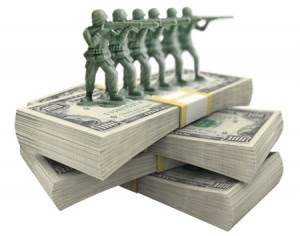Americans Cannot Afford to Risk Sanctions Against China
The exemptions for other countries began at the end of 2011. At that time, President Obama signed the National Defense Authorization Act for Fiscal Year 2012, which included provisions for the implementation of oil sanctions against Iran. It was determined that if any entity purchases large volumes of Iranian oil through dealings with Iran's Central Bank after sanctions officially began on June 28 of this year, the U.S. government would break off connections between the financial institutions of that entity and the U.S. banking system. This in essence was an effort to draw the world into America's great gamble of imposing sanctions against Iran. Doing as you're told has become the U.S.'s criterion for choosing its friends, as the whole world has been asked to pick sides between the U.S. and Iran.
A Wall Street Journal report claimed that the reason the Obama administration believes China has met the requirements is that China has reduced Iranian oil imports by approximately 25 percent over the last five months. However, the report also suggested that China did not cut back on oil imports from Iran after being forced to bow to the pressure of U.S. sanctions, but rather because of a dispute over prices between Beijing and Tehran. In truth, Chinese oil imports from Iran in May exceeded 500,000 barrels a day, actually up 39 percent over April figures, and comparable to levels of imports the year before. Some U.S. media sources even predicted that Iran would export even more oil to China this summer in order to compensate for losses in the European market.
Regardless of the truth of the matter, it seems that what Washing needed was only an excuse that would allow Uncle Sam to exempt China, Iran's top customer for oil, without any loss of face.
For Washington, the real effects produced by isolating and sanctioning Iran have become a source of some vexation. According to International Energy Agency data, exports of Iranian crude oil fell by approximately a million barrels per day, amounting to losses of $8 billion per quarter. It is obvious that sanctions have already had a major impact on the Iranian economy, with Iran's currency depreciating by 40 percent. Moreover, since the EU's embargo on Iranian oil went into effect on July 1, Iran's economic situation has become even direr. However, despite once again being put in the crosshairs, Iran, which has endured decades of sanctions, has responded with an indifferent "we got used to sanctions," and stated that they will "continue our path."
This result has made the U.S. fairly disheartened. According to a statement by a U.S. official, to gain exempt status, a country must decrease oil imports from Iran by a minimum of 15 percent. However, after India announced in May that it would cut Iranian oil imports by 11 percent, the U.S. hurriedly put India on the list of exempted countries. So, China ultimately being given similar "status" does not come as a surprise.
However, in front of Iran's top buyer of oil, the Obama administration must also play coy. Japan and 10 EU countries gained exemptions from the U.S. long ago in March of this year, while India and the other six countries enjoyed the same "status" in June. Going by U.S. statements, China has already decreased imports of oil from Iran by 25 percent over the past five months, so it should have been included on the list of exemptions for June. Then, why would the U.S. only exempt China at the last moment? The truth is that it is the same as the previous gambit made regarding the renminbi in the case on exchange rate manipulation. The U.S. likes to threaten others by lifting a big stick, but will not bring that stick down. Its ultimate objective is to exert pressure on China, hoping that it will further reduce imports of Iranian oil in the future.
In fact, calls within the U.S. for China to continue cutting down on oil imports from Iran are growing louder. Because the exemption is only valid for six months, there is the implication that pressure over the matter has not been lifted completely, and China will face the next high tide in the "game" of sanctions in half a year. As for the present, the era when countries will rally behind the U.S. is long since passed.

